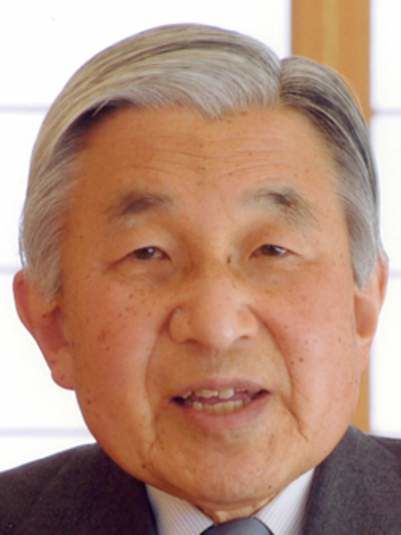In speech, Japan’s emperor comes down to Earth
Published 5:00 am Tuesday, March 22, 2011

- Emperor Akihito of Japan
Here is a man. A small man — at 77, an old man — in a dark suit with an unremarkable voice, frequently glancing down at the papers on his desk, which hold an address of plain words. It is the emperor of Japan.
To see him is not to see a president or prime minister, who trade in television appearances and winning turns of phrase. Until Emperor Akihito addressed his people Wednesday, he had never delivered a televised speech. Not once in his two-decade reign.
“I hope things will take a turn for the better,” he said to a nation that had just suffered a massive earthquake and nuclear plant disasters. “It is my hope that many lives will be saved.” His entire address was about five minutes long.
The screen-watching world has been particularly attuned this year to the speeches of kings, or at least the speeches of kings in Oscar-winning movies. “The King’s Speech” helped Americans understand that it meant something when a royal spoke. That’s all royals seem to do anymore, anyway: They mean things. They symbolize things, decoratively, all pomp and pageantry and figureheads. But in times of crisis, they could genuinely mean something.
The Japanese monarchy is the oldest hereditary dynasty in the world, going back more than 2,000 years. Until World War II, emperors were considered to be arahitogami — incarnate deities, living gods. There were forms of speech that only emperors could use. Chin, an emperor would say, for “I,” and it was an “I” that was for no one else.
When Japan surrendered to the Allies in 1945, Akihito’s father, Emperor Hirohito, was forced to refute his divine status. He became just a man, an emperor with no empire.
This is the throne Akihito inherited in 1989 — an ancient title in a modern era. “He cannot decide anything,” says Ben-Ami Shillony, an Israeli author who has written two books on the Japanese monarchy, and who was honored by the emperor in 2010 for his contributions to Japanese studies. Akihito “cannot say anything of a political or controversial nature,” Shillony says. “He really has no powers at all.”
His actions are controlled by the Imperial Household Agency, the government institution whose purpose is overseeing the emperor. He gives an annual address to open Japan’s parliament that the government has written for him. He stands on a balcony on his birthday and waves to cheering crowds.
What he has is symbolism. Meaning.
Of Wednesday’s address, Purdue says, “The person who represents the essence of being Japanese was speaking to the nation at one of Japan’s most important times.”
The last time a Japanese monarch made such an address was in 1945 — when he had to tell his people that their country had surrendered. “The war situation has developed not necessarily to Japan’s advantage,” Hirohito hedged in firm, clipped tones, using a formal dialect. It was the first time the Japanese had heard their ruler’s voice.
Akihito’s speech was formal, Japanese speakers noted, but no more formal than an average citizen would use for such a solemn occasion. When he used the pronoun “we,” it was the “we” of any Japanese citizen.
There were no quotable lines, no fourscore and sevens, no “I have a dream.” It didn’t overpromise, or even promise. It offered hope, tentatively. It wasn’t really a good speech; what made it good was the fact that it was given. The messenger was the message.
Yoko Hasegawa, a professor of Japanese linguistics at Berkeley, has been particularly attuned to a website that allows people to comment on a news stream as it is broadcast.
Before the speech, Hasegawa recalls in an e-mail, there were comments speculating that the emperor had fled the country, or that he didn’t care because the palace probably had its own fallout shelter. After the address, the negative comments stopped. She hasn’t seen any since.
One could imagine many reasons why this would be so. The most romantic interpretation is that the small, understated address meant something very big, and what it meant was what Colin Firth’s George VI said his speech meant, in a time of confusion and yet incalculable suffering:
“The nation believes that when I speak, I speak for them.”






